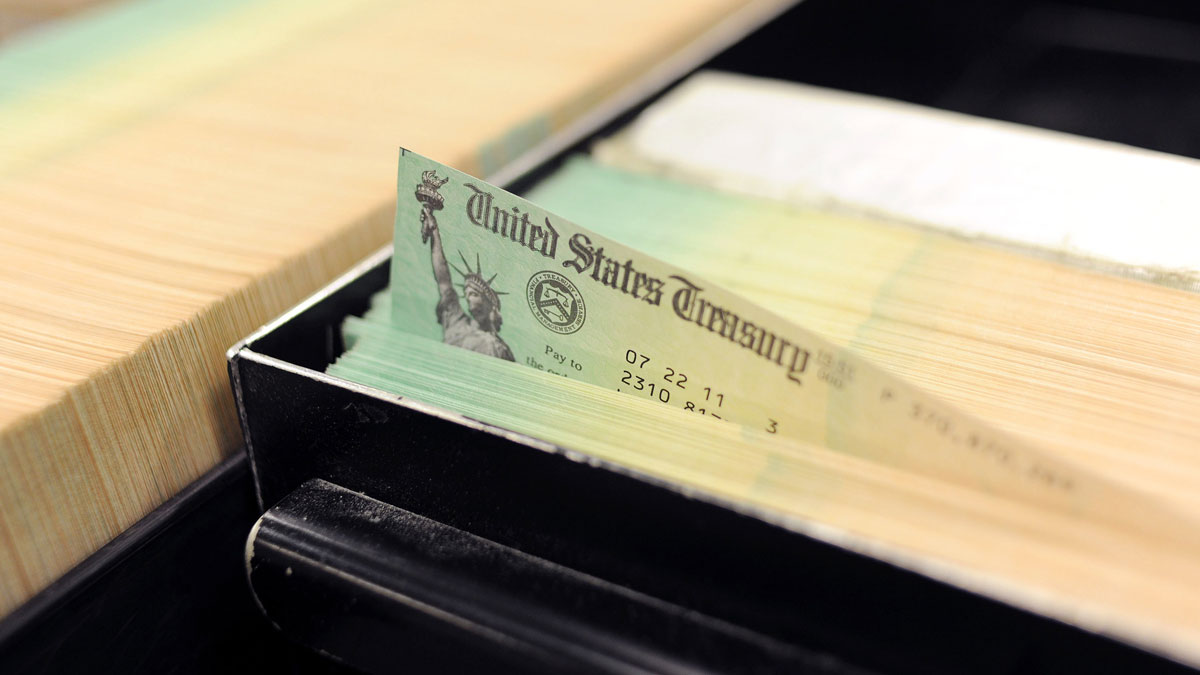The Internal Revenue Service began distributing direct payments to millions of Americans last week, as part of the Coronavirus Aid, Relief and Economic Security (CARES) Act, but plenty of people are having issues with the "Get My Payment" portal, which offers information about the status of payments.
"The first day it was a mess," taxpayer Chris Carson said. "I logged in a couple of times, and it locked me out for 24 hours. There's also no way to contact anyone."
Rob Strasnick echoes the same sentiment: "There is no idea of when they're coming. You can log into the IRS website, and check your payment icon, and it gives me a message 'Payment Status Not Available.' It gives you reasons for why that may be, including not having filed prior tax returns, or haven't filed one recently, but I have filed," Strasnick said.
If the payment status is not available, the IRS says it could be for a number of reasons, such as you are not eligible for payment, or if you have not filed a return in the tax year 2018 or 2019. Certified Public Accountant Scott Kaplowitch says he's heard from a lot of clients who are getting that same message on the portal.
More on Stimulus Checks
"There really is no one to answer the questions, there really is no support for the process," Kaplowitch said. "Even me as a CPA, I went on to help a client, and it was frustrating, to say the least."
Other questions we've heard: Will you get a check if you owe the IRS back taxes for previous years? According to the IRS website, the answer is yes.
What if the portal tells you that your payment should have been deposited on April 15, but you haven't received it yet? The IRS says your financial institution may not have processed it yet, but to keep checking back.
Some parents want to know if their dependents, who are 18 or older, will be getting their own checks. In this case, the answer is no. Children will not receive a check if they are claimed as a dependent on their parent's return.
If you have received a relief payment from the federal government on behalf of a deceased loved one, you are not alone. If an individual died in 2019, and their most recent tax return on file was for 2018, it's possible they would be issued a check. The IRS hasn't issued guidance on this yet, but experts say to set the money aside.
"I would recommend that people who do get refunds for deceased taxpayers leave the money in their accounts, until such time as the IRS comes up with a process of whether they want it refunded or not," Kaplowich said.
And some people are reporting that their checks are being sent directly to their tax preparer and not to themselves. This could be why: when you file with a tax preparer, temporary accounts are set up for people who want a refund advance or to deduct tax prep fees from a refund.
Some banks are reporting that the IRS has been depositing stimulus checks into these temporary accounts. The IRS says it is working to resolve any problems as soon as possible.
If you still have questions and want to speak directly to someone at the IRS, you're probably out of luck. The agency says it doesn't have the ability to accept calls at this time. Your best bet is to keep looking for updates on their website.



